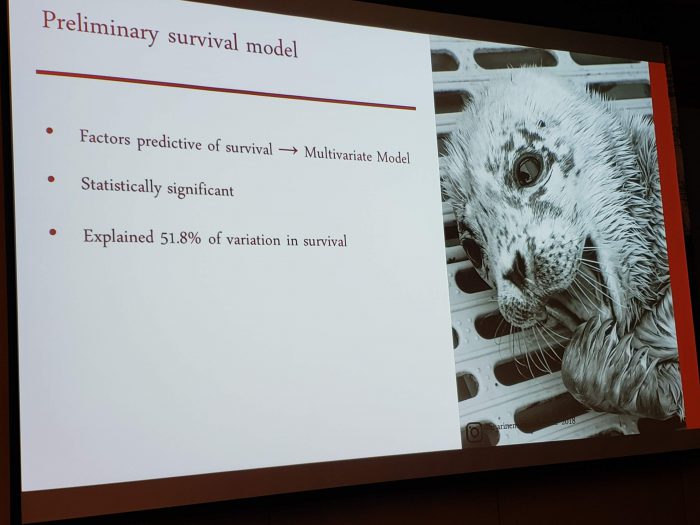British Columbia Marine Mammal Symposium
As a geomatics student at the University of Victoria, I fell into my current position on the Whale Watching AIS Vessel Movement Evaluation (WAVE) Project knowing very little about marine mammals, marine vessel, and marine environments. Yet, I find myself in working on a thesis that pulls from these topics extensively. One downfall of having very little prior knowledge of these marine topics is that I must learn about them on my own. Considering the specificity of my thesis work, the generalized courses offered are not be the best fit. Fortunately, I found the British Columbia (BC) Marine Mammal Symposium last fall to be both knowledge enhancing and reassuring. I learned of the many different studies being conducted involving marine mammals and the marine environments of whales, seals, and sea birds. Furthermore, I learned that this field pulls scientists from all different backgrounds together to study various trends in conservation, technology, and biology.
The BC Marine Mammal Symposium does not just consist of academics and researchers, but included industry partners, non-profit organizations, and policy makers. Regardless of the scientific focus of many of the talks, networking with these pivotal groups of influencers within the marine realm was was valuable. Many of the talks required maps to relay information in an intuitive and informative way. Interestingly, the maps created using Esri software have a distinctive quality and a polished look. Although there were very few geographers presenting, geomatics and geographic software was paramount in representing results even at a marine mammal symposium.
Overall, the BC Marine Mammal Symposium was a beneficial experience in my first semester of my graduate studies. Better understanding these researchers’ scientific processes, their roles within the industry, marine mammal ecology, and best practices for relaying information using geographic software, has propelled my thesis work forward by providing a solid foundation of marine mammal research. My hope is that next year I am able to contribute to the growth of this knowledge-base for others in academics, industry, and policy.

